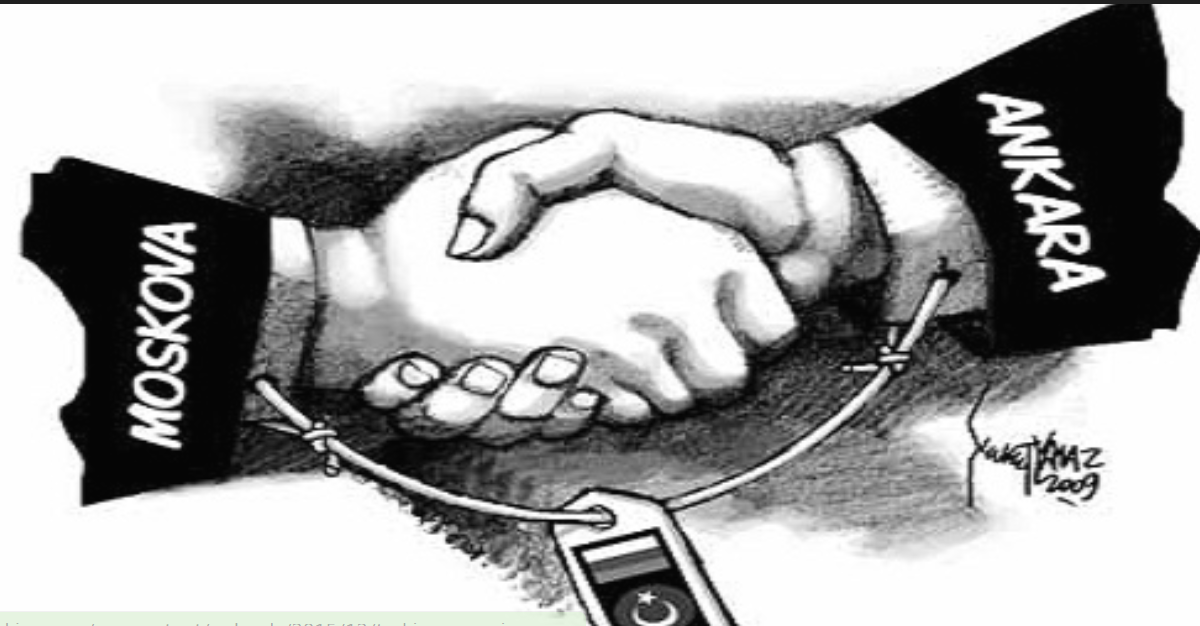While Ankara’s ratification of Swedish accession to NATO cuts off a new venue for trouble between Turkey and US, the economic interdependence between Turkey and Russia are set to increase, writes Dmitar Bechev for Carnegie Endowment for International Peace. Ankara’s balancing act between the west and the Wast is set in stone, which will frustrate both sides in the coming years.
“Turkey never joined the West in imposing sanctions on Russia”, write Bechev, pointing to a new topic that reinforced mutual economic dependence. It has become a top buyer of Russian crude oil, behind only China and India. While most of Europe has cut aviation links with Russia, Istanbul airport remains a hub for flights to and from Russia’s major cities. Erdoğan is now preparing to host Putin on February 12, despite the Russian president’s pariah status in the West.
At the end of January, the Turkish parliament finally approved Sweden’s accession to NATO (new members require unanimous approval from existing members). The issue of Sweden’s membership had become a bargaining chip, with Ankara demanding concessions from both Stockholm and, more importantly, the U.S. administration and Congress.
Erdoğan seems to have gotten what he wanted: before the parliamentary vote, the U.S. State Department approved a $23 billion deal to sell forty new F-16 fighter jets to the Turks. The U.S. Congress, where there is no love lost for Erdoğan among either the Democrats or the Republicans, is expected to greenlight the transfer.
Turkey appears willing to observe U.S. secondary sanctions on Russia. Following an executive order issued by President Joe Biden in December that seeks to punish foreign companies aiding Moscow’s war effort, Turkish banks have reportedly cut ties with their Russian counterparts. According to Russia’s Kommersant newspaper, exceptions have only been made for subsidiaries of foreign banks in Russia.
At the same time, Turkey has been boosting its presence in the Black Sea. On January 11, Turkish Defense Minister Yaşar Güler inaugurated a joint naval operation with Romania and Bulgaria as part of which the three countries will deploy demining ships, patrol vessels, helicopters, and drones to clear sea lanes of stray mines, which have caused problems since the start of the fighting in Ukraine.
The Mine Countermeasures Group in the Black Sea is theoretically open to other NATO members, though Turkey has been scrupulous about enforcing international rules that ban military ships from non–Black Sea countries from passing through the Bosphorus in wartime.
While all these developments are significant, they amount to a tactical readjustment rather than a strategic overhaul of Turkish foreign policy. Erdoğan and the Turkish elite do not intend to abandon Russia.
The backbone of the Moscow-Ankara relationship remains the energy trade. According to calculations by Reuters news agency, Turkish imports of Russian crude hit an all-time high of 400,000 barrels per day in November (about 14 percent of Russia’s seaborne oil shipments). Volumes may increase even further in 2024, after Russia’s Lukoil signed a deal with Turkey’s STAR refinery to supply 200,000 barrels of oil per day, and issue a $1.5 billion loan.
Some of the oil currently pumped to Lukoil’s Neftochim refinery in Bulgaria (exempt from the EU sanctions) will likely be redirected to STAR, which is located next to the Aegean port city of Izmir. Its refining capacity means Turkey looks set to consolidate its role as a hub for Russian oil exports, including to the EU. In addition, Turkey is reexporting oil products from Russia (imports of Russian diesel and other products tripled in 2023).
It’s not just oil: Turkey is also becoming increasingly important for Russian natural gas shipments. With Gazprom’s transit agreement with Ukraine expiring at the end of this year, the TurkStream pipeline looks set to become Russia’s sole export route to the EU. Turkish state-owned utility BOTAS has already concluded contracts to supply Hungary’s MVM and Moldova’s Moldovagaz. It has also secured access to the Bulgarian grid, including the underused Trans-Balkan Pipeline, which was the main route for Russian gas coming into Turkey before completion of the undersea TurkStream.
In other words, Turkey can buy Russian gas from Gazprom, mix it with gas from other sources, and resell it to European countries seeking to diversify their energy supplies. Russian President Vladimir Putin stated in 2023 that an agreement on a “gas hub” in Turkey was in the works. But even without a formal deal with Moscow, Turkey appears to be in a good position to profit from Russia’s isolation from the European gas market, which absorbed the bulk of Gazprom’s shipments before the full-scale invasion of Ukraine.
The huge profits to be made from the energy trade ensure that Turkey’s partial shift to the West will not have a major impact on its relations with Russia. Moscow needs Erdoğan more than ever because of the economic lifeline he provides. In a similar way, Washington prefers engagement with Ankara over hostility. Both the United States and Russia have learned to live with Turkey’s balancing act.
Follow our English language YouTube videos @ REAL TURKEY: https://www.youtube.com/channel/UCKpFJB4GFiNkhmpVZQ_d9Rg
And content at Twitter: @AtillaEng
Facebook: Real Turkey Channel: https://www.facebook.com/realturkeychannel/
